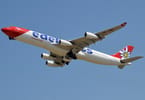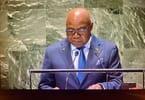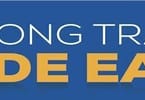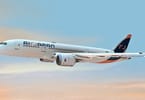WASHINGTON, DC – Business Travel Coalition (BTC) today called on the US Department of Transportation (DOT) to investigate the latest anti-competitive and anti-consumer airline initiative. The Travel Technology Association this morning released a study authored by Dr. Fiona Scott Morton, a former Deputy Assistant Attorney General at the Antitrust Division of the U.S. Department of Justice and current economics professor at Yale’s School of Management, that analyzes the value of consumers having access to complete and accurate information when comparison shopping for air travel options on online travel agency (OTA) and metasearch websites.
Airline-direct distribution has been reduced from 11 channels in 2005 to 4 today as the Big Three U.S. airlines (Delta, American, United) have engineered a radical consolidation of the domestic airline industry. Some U.S. airlines have been pulling airfare and schedule information from OTAs harming consumers and these indirect distribution-channel competitors. The airline-direct channel competes for customers with the OTAs, which is good for consumers. With fewer airlines, the direct channel has become much more dominant and now this fortified market position can be used to muscle out competition. The biggest risk in consolidation of any industry is tacit coordination. If one of the Big Three pulls fares out of an OTA that firm could lose up to 20 percent of industry-wide fare inventory. If another of the Big Three follows, then that OTA could be forced from the market.
“Independent distributors’ interests are in alignment with consumers’ interests in the important sense that both parties want and need complete and accurate pricing information. Strong, independent distributors are necessary to keep the airlines honest on their own websites and in their offerings elsewhere to consumers. OTAs and metasearch sites uniquely provide consumers with the comparison-shopping tools that keep pricing discipline in the system,” stated BTC founder Kevin Mitchell. “In the alternative, consumers would have to go to the Walled Garden of each airline website and spend hours trying to determine the best deal. Of course, often, they would not find that best deal, and absent the comparison-shopping tools provided by OTAs, pricing pressure would go down while prices would go up,” added Mitchell.
BTC believes that DOT must connect the many dots that make up the Big Three’s post-consolidation strategy and act to prevent the further erosion of competition and to safeguard consumers’ interests. That strategy appears to many observers to include profit-maximizing and anti-consumer tactics of reducing price transparency, undermining consumer protections and diminishing competition.
Examples of these plans include:
PULL FARES FROM OTAs
It can be concluded from Dr. Morton’s analysis that if OTAs do not have access to the Big Three’s fare inventory that airlines’ bottom lines would be padded conservatively by $6 billion dollars through higher airfares. Using 2015 as a reference point, the projected $13.2 billion in net profits would swell to $19.2 billion, or 45 percent – virtually all of the gain going to the Big Three.
WITHHOLD ANCILLARY FEE DATA
Since 2008, the Big Three have rejected their most valued corporate customers’ demands for ancillary fee data that would enable their business travelers to efficiently see, compare and buy ancillary services (e.g., checked bags, preferred seats) in the same transaction as the base airfare. Leisure travelers must navigate airline websites in search of best airfare and ancillary fee combinations often paying higher prices than necessary. In total, this opacity results in these ancillary fees not being disciplined by market forces. Likewise, there is great profit in consumer confusion.
FIGHT PASSENGER FACILITY FEES (PFCs)
Airports use PFCs to add gates and other facilities to attract additional airlines to compete for local travelers’ business expanding consumer choice and disciplining incumbent airlines’ prices. The Big Three seem to not want new competition.
KILL THE EXPORT IMPORT BANK
Keep those shinny news Boeing aircraft out of the hands of foreign competitors.
BLOCK NORWEGIAN AIR INTERNATIONAL’S (NAI) APPLICATION
Under the EU-US Open Skies agreement, NAI’s application to serve the U.S. should have been a 5-week pro forma review and approval. Instead, airlines’ political pressure has held up approval for 15 months. This is as embarrassing to the United States as it is outrageous in its harm to U.S. consumers. Airlines fear that if NAI’s low-fare business model were to be embraced by U.S. consumers, other carriers like Ryanair and JetBlue would seek to emulate NAI’s success.
UNDERMINE U.S. DOT CONSUMER PROTECTION AUTHORITY
The Big Three fought the Full Fare Advertising Rule promulgated in 2011 by DOT. When DOT implemented the rule to safeguard consumers’ interests, the airlines sued DOT in federal district court and lost. They then went to the Supreme Court, which rejected their pleas. Airlines finally turned to the U.S. House of Representatives to pass the Orwellian named Transparent Airfares Act of 2014. The bill, luckily rejected by the Senate, would have increased airlines’ revenues and profits by obscuring the true price of air travel options.
SEEK GOVERNMENT PROTECTION FROM GULF CARRIER COMPETITION
The Big Three claim that the Gulf airlines — Emirates, Qatar and Etihad — receive government support that is harming the U.S. carriers. The Big Three co opted Congress again with a Congressional letter that supports the Big Three’s call for a freeze in new air services by the Gulf airlines — all without having allowed those carriers an opportunity to respond to the allegations, not to mention the glaring hypocrisy that the U.S. airline industry, by the Big Three’s very own math, has been the most heavily taxpayer subsidized and structurally advantaged in history of commercial aviation. Brazenly, the airlines warned the Obama Administration last week that if they don’t play ball, the Big Three will again seek Congressional legislative support.
“When it comes commercial aviation, antitrust and competition policy, the consumer represents the North Star; policy needs to be in alignment with consumers’ interests. Moreover, in the U.S. free enterprise system, consumers have sovereignty — the power or freedom to have final say. In the end, consumers determine whether any business succeeds or fails. Airlines’ policies to undermine price transparency, competition and their regulator, and government protectionist policies, rob consumers of this power and distort markets,” BTC’s Mitchell said. “No market in the world is fair; to succeed market participants must play to their unique strengths and advantages. Members of Congress need to understand this and DOT must act accordingly and in the best interests of consumers,” continued Mitchell.
WHAT TO TAKE AWAY FROM THIS ARTICLE:
- Department of Justice and current economics professor at Yale's School of Management, that analyzes the value of consumers having access to complete and accurate information when comparison shopping for air travel options on online travel agency (OTA) and metasearch websites.
- This is as embarrassing to the United States as it is outrageous in its harm to U.
- “In the alternative, consumers would have to go to the Walled Garden of each airline website and spend hours trying to determine the best deal.






















